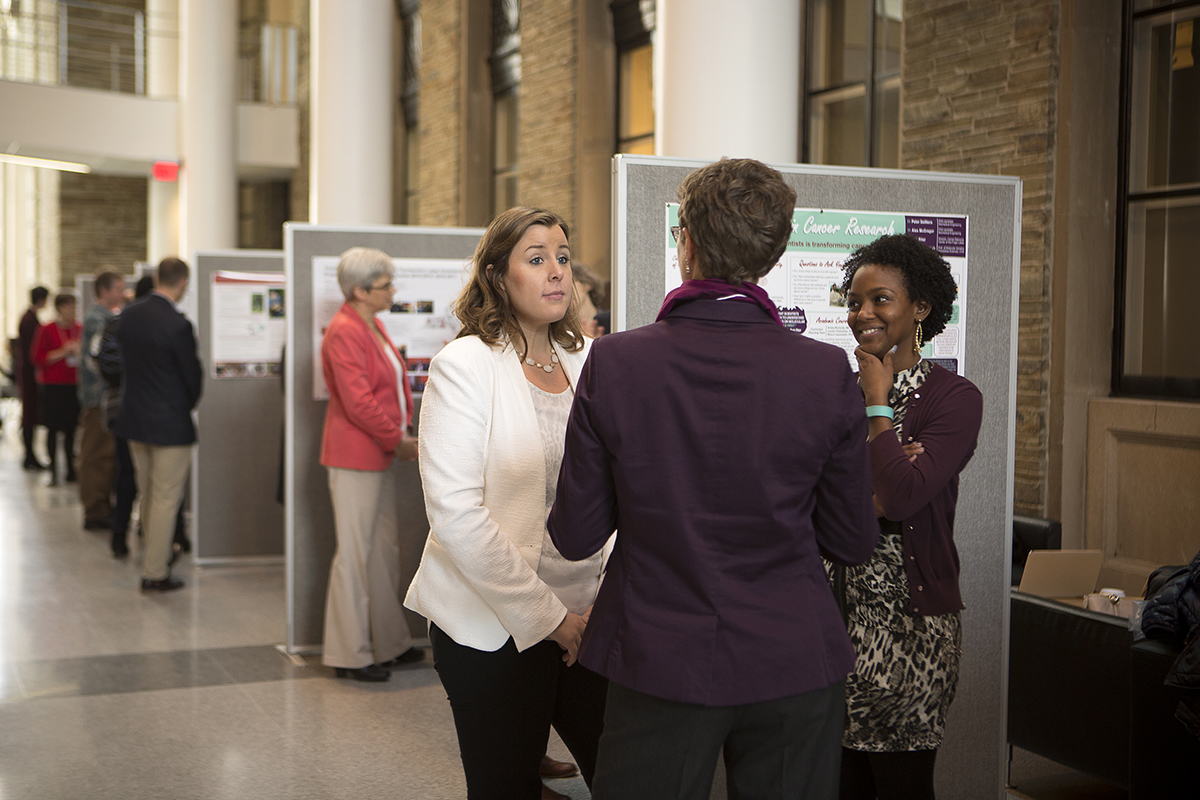Engaged Cornell students, faculty present projects
By Amanda Kabonero

Months and years of research were showcased Oct. 28 at the Engaged Cornell grant recipients’ poster session, where students and faculty had the opportunity to share research projects supported by grants from the Office of Engagement Initiatives.
The office provides a number of different grants for curriculum development, research, scholarship, travel, leadership and other community-engagement projects. The event showcased projects ranging from empowering youth through writing to addressing health disparities among rural women.
Included in the 18 student and faculty projects presented in the Physical Sciences Building were:
Urshila Sriram, a graduate student in nutritional sciences, evaluated how civic engagement intervention strategies could impact the health outcomes of women in three rural towns in New York state and Pennsylvania. To encourage engagement, an initiative called the “HEART Club,” short for Healthy Eating and Activity in Rural Towns, was developed to improve the food and fitness environments in these areas.
Fernando Rodriguez, a graduate student in development sociology, studies the indigenous Miskito community in Honduras, which has maintained its claims to land that comprises 15 percent of the country’s national territory. “My framework is going to be based on how this system of property rights can change the dynamics both for the protection of natural resources and the preservation of moskito customary practices,” Rodriguez said.
Lily Moran ’18 and Dana Schmidt ’17 worked in the economic development office of Rust to Green Binghamton: Living With Water Initiative, a faculty-led research project to revitalize post-industrial Rust Belt cities. Their work mainly focused on strategies, such as interviewing community members, to address the problems that arose from the 2006 and 2011 floods in Binghamton.
Sean Cosgrove, a graduate student in history, partnered with the organization Power Writers to develop a program for underprivileged youth in New York City aimed at inclusion in higher education. The program is set to run from January to March 2017 and will “enable [students] to rewrite narratives in their local community,” Cosgrove said.
Allison Killea ’18 participated with one of the three conservation medicine teams funded by the Office of Engaged Initiatives. In partnership with the Jane Goodall Institute-Uganda, water sources in the Masindi district were surveyed, tested and found to have high levels of coliform and E. coli from human and chimp feces. “Breaking down the barrier between what the general public thinks of science and what the scientific community actually knows,” said Killea, “I would hate if there is a problem in the world that we could fix but we just don’t know how to talk to each other.”
Amanda Kabonero ’20 is a writer intern for the Cornell Chronicle.
Media Contact
Get Cornell news delivered right to your inbox.
Subscribe